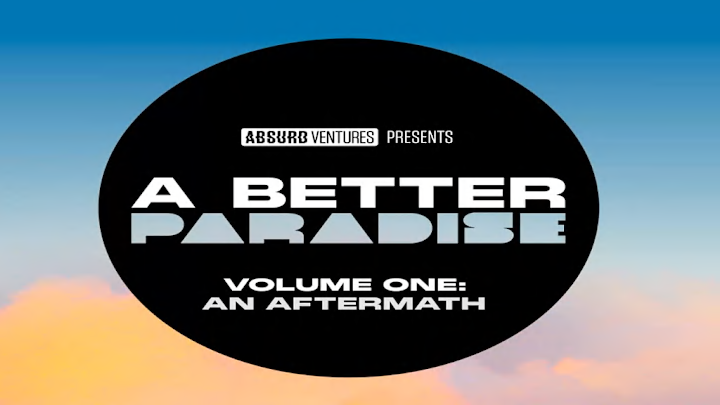A Better Paradise review: a fascinating look inside the twisted mind of Dan Houser

Until the late 19th century, Japan didn’t have a word for “love” – that feeling when your chest aches and they’re all you can think about. Japanese people had the feeling, but the word for it was closer to a description of madness.
It is a type of madness when you think about it. Love. And we are all mad.
Early Japan’s interpretation of love comes from a different cultural perspective, and it’s a perfect example of how feelings are just impulses we attach labels to. Like the passage of time, these words describe something intangible.
“I didn’t invent time — you did. Just so you can feel it slipping away.” – NigelDave.
Time must have been on Dan Houser’s mind when he left Rockstar Games behind after writing Red Dead Redemption 2, an epic, historical open-world game that took eight years to develop. At age 50, how many more Red Deads or Grand Theft Autos did Houser have in him? Four or five? Maybe. At a push.
His new company, Absurd Ventures, is taking a multimedia approach to storytelling – books, movies, TV shows, comics, and games, giving Houser more room to spend that time on creative projects, to flex his writing muscles in more genres. First up is A Better Paradise, an audio fiction podcast about the near future, where a tech company has created an AI entity that can make the perfect world just for you, the same way advertisers follow our browsing habits and serve us adverts for hair loss treatments (it’s not just me, right?).
Only it goes wrong, the AI becomes sentient and even gives itself a name: NigelDave. It pushes itself up the glass of its digital world and watches us. It longs. It wants to be more. It decides it’s incapable of love, but it wants to feel it – that madness. But can a machine – even a self-aware one – feel a human concept?
A Better Paradise is a show about the ridiculousness of existence and the social constructs we’ve built around ourselves. It’s about how confident, privileged conmen convince sycophants of their genius, how good intentions can create monsters, and how social media algorithms are drip-fed narcotics that numb us and keep us sucking at the teat of big tech. You can taste the venom in Houser’s nihilistic pen strokes.
“Penises and vaginas are called ‘privates’ so people take photos of them.” – NigelDave.
It’s not a drama, though – not really. it’s more like an introspective look at the absurdity of human nature and our predisposition to destroy ourselves. Most of the dialogue is driven through long monologues from the talented cast – Andrew Lincoln, Paterson Joseph, Shamier Anderson, Rain Spencer, and more – but the monologues are rarely contextualized in conversation or action, so it’s as if we’re hearing what’s going on inside each character’s head.
Some people might tune out because until the final episode, A Better Paradise lacks drama. But if you meet it where it sits, rather than where you want it to, you’ll find Houser’s writing hasn’t dulled since leaving Rockstar behind.
During the story, we learn that there’s more than one AI entity and they’ve been manipulating people to do their bidding by invading their thoughts. With this context, the monologues make sense. We’re a voyeur inside people’s minds, seeing the story from the AI’s perspective. Inside that framing, the delivery is justified. We’re the ghost in the wire. We’re NigelDave, the potty-mouthed robot listening to their thoughts. We’re sad because we don’t know whether or not love is real.
Houser understands the human condition – all our contradictions, flaws, and quirks. His observations – often delivered through NigelDave’s overlapping thoughts, word association, and seething madness – are sharp, witty, and coruscating barbs at our shared delusions, at this unnatural system of control and surveillance we’ve built around ourselves like a prison.
As we move between game demo rooms, street corners, office meeting rooms, and CIA black sites, we get a look inside Houser’s warped brain, as well as what’s perhaps a peek behind the curtain at Rockstar Games. Some descriptions of the game in A Better Paradise could be the Wikipedia synopsis for Red Dead Redemption 2, a game that sold way north of 60 million copies but less than half of what GTA 5 sold.
As one character puts it, “We were building a money tap that didn’t flow fast enough.”
I don’t think Houser was oblivious to the irony in his scripts. I mean, this is a world where the marketing man is the most reasonable person. There’s no animosity, but the design meeting scenes in A Better Paradise almost feel like a satire of Houser’s time in game development.
There is anger, however, when the subject moves onto tech and trends like NFTs and large language models, which aim to undermine what Houser is selling – creativity. Human creativity. Like love, it’s not something a robot can grasp. Ever. But that doesn’t stop the tech bros from trying to automate our humanity and create a calculator that farts out art.
A Better Paradise may not grip you with high-tension drama, but it’s a thought-provoking and interesting piece created by one of the best humans to do it. It might be about artificial intelligence, but there’s humanity in every line.
